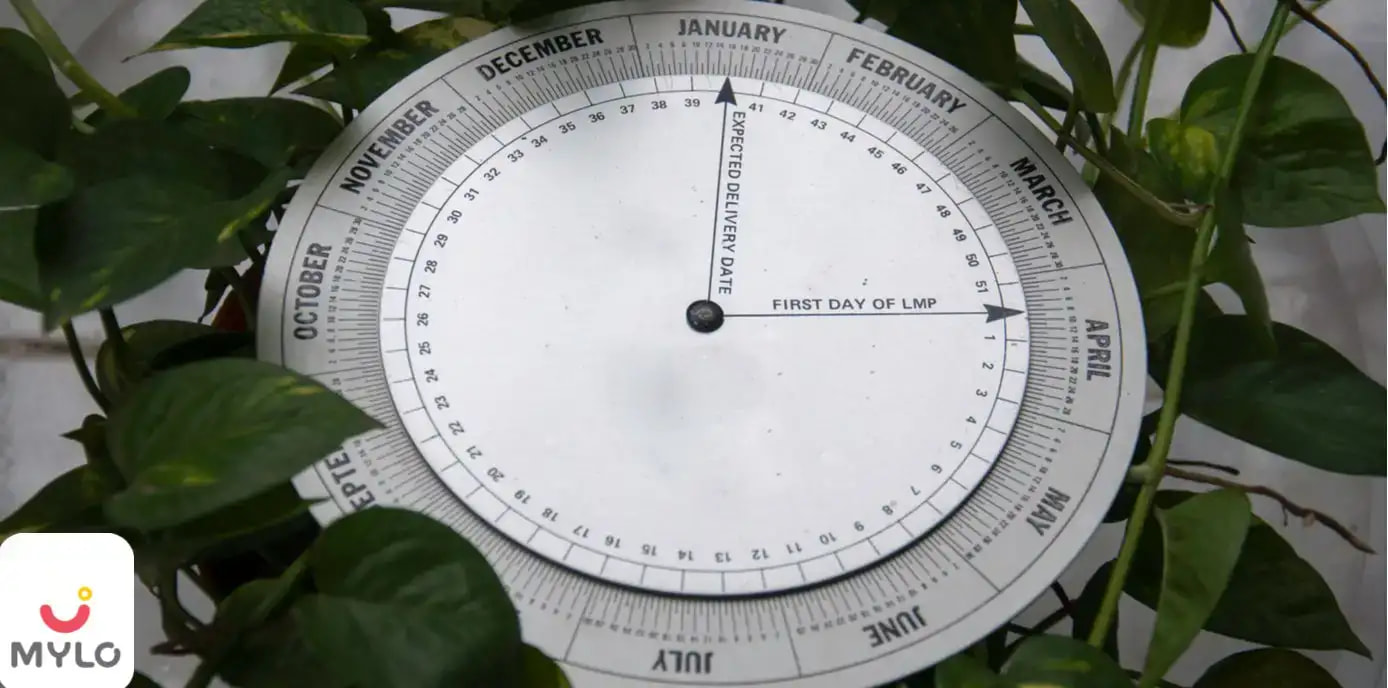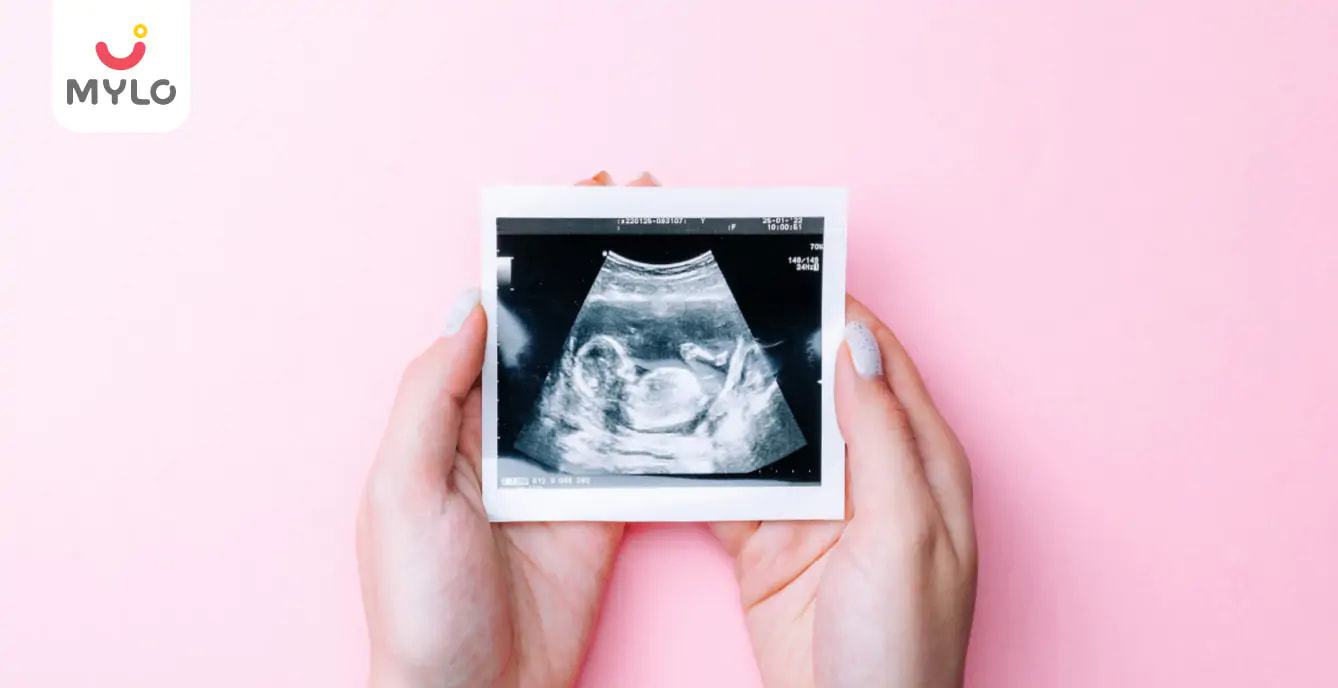Home

Discrepancy Between LMP and Ultrasound Gestational Age: Expert Insights
In this Article

Discrepancy Between LMP and Ultrasound Gestational Age: Expert Insights
Updated on 3 November 2023



Medically Reviewed by
Dr. Shruti Tanwar
C-section & gynae problems - MBBS| MS (OBS & Gynae)
View Profile

Pregnancy is an exciting time, but it can also be overwhelming, especially when it comes to determining the due date of the baby. Gestational age is a term used to describe the age of the baby in weeks and days from the first day of the last menstrual period (LMP). The due date is calculated by adding 40 weeks or 280 days to the first day of the LMP. However, the due date can also be determined by ultrasound, which measures the size of the baby and calculates the due date based on that measurement.
In this article, we will understand the possible causes and implications of discrepancy between LMP and ultrasound gestational age and what is more accurate ultrasound due date or LMP.
Understanding LMP and ultrasound gestational age
The LMP is used to determine the gestational age of the baby because it is the most accurate way to determine when the pregnancy began. The LMP is the first day of the last menstrual period, and it is used to calculate the due date by adding 40 weeks or 280 days. Ultrasound gestational age, on the other hand, is determined by measuring the size of the baby. The ultrasound technician measures the baby from head to bottom, and the CRL measurement is used to calculate the due date.
Causes of discrepancy between LMP and ultrasound gestational age
There are several reasons why there may be a difference between LMP and ultrasound gestational age.
1. Irregular periods
One of the most common reasons is that the LMP may not be accurate. Women may have irregular menstrual cycles, making it difficult to determine the first day of the last menstrual period.
You may also like: How to Determine Pregnancy Due Date with Irregular Periods?
2. Implantation bleeding
Some women may experience implantation bleeding when the conceive. Implantation bleeding is light spotting that may occur when a fertilized egg implants itself in the lining of the uterus. This usually happens 6-12 days after fertilization and can be mistaken for a light period, leading to an inaccurate LMP.
3. Fetal growth rate
Another reason for the discrepancy could be that the baby is growing at a different rate than expected. This can happen if the baby is smaller or larger than average. It can also happen if the baby is growing at a slower or faster rate than expected.
4. Ultrasound timing
Lastly, the timing of the ultrasound can affect the gestational age. If the ultrasound is done early in the pregnancy, the gestational age is usually accurate. However, if the ultrasound is done later in the pregnancy, the gestational age may be overestimated.
You may also like: Why Is It Crucial To Get Sonography Done After Four Weeks Of Pregnancy?
What is more accurate ultrasound due date or LMP?
It is difficult to say which due date is more accurate because it depends on the individual situation. If the LMP is known and the menstrual cycle is regular, the LMP due date is likely to be accurate. However, if the menstrual cycle is irregular, the LMP due date may not be accurate. Additionally, if the ultrasound is done early in the pregnancy, the ultrasound due date may not be accurate.
You may also like: Know Why Your Doctor May Change Your Due Date During Pregnancy
Should I go by LMP or ultrasound due date?
It is recommended that women go by the ultrasound due date if there is a discrepancy between the LMP and ultrasound gestational age. This is because the ultrasound due date is based on the size of the baby, which is a more accurate way to determine the due date. However, if the LMP due date is more accurate, the healthcare provider may recommend going by that due date instead.
What if there is a 1 week difference between LMP and ultrasound gestational age?
If there is a 1 week difference between LMP and ultrasound gestational age, it is usually nothing to be concerned about. This small discrepancy is within the range of normal and is unlikely to affect the timing of important tests and procedures.
What if there is a 2 weeks difference between LMP and ultrasound gestational age?
If there is a 2 weeks difference between LMP and ultrasound gestational age, it is important to discuss this with the healthcare provider. This larger discrepancy could indicate that the baby is not growing at the expected rate or that there is a problem with the pregnancy. The healthcare provider may recommend additional ultrasounds or tests to monitor the pregnancy and ensure the health of the baby.
The Bottomline
The due date of a baby is an important milestone in pregnancy, but it can also be confusing and overwhelming. It is not uncommon for there to be a discrepancy between LMP and ultrasound gestational age, and there are several potential causes for this difference. If there is a discrepancy, it is important to discuss this with the healthcare provider and follow their recommendations for monitoring the pregnancy. By working together, women and their doctors can ensure the health of the baby and a safe delivery.
References
1. Kullinger M, Granfors M, Kieler H, Skalkidou A. ( 2018). Discrepancy between pregnancy dating methods affects obstetric and neonatal outcomes. Sci Rep.
2. Morgan JA, Cooper DB. (2022). Pregnancy Dating. NCBI





Medically Reviewed by
Dr. Shruti Tanwar
C-section & gynae problems - MBBS| MS (OBS & Gynae)
View Profile


Written by
Parul Sachdeva
A globetrotter and a blogger by passion, Parul loves writing content. She has done M.Phil. in Journalism and Mass Communication and worked for more than 25 clients across Globe with a 100% job success rate. She has been associated with websites pertaining to parenting, travel, food, health & fitness and has also created SEO rich content for a variety of topics.
Read MoreGet baby's diet chart, and growth tips

RECENTLY PUBLISHED ARTICLES
our most recent articles

Diet & Nutrition
গর্ভাবস্থায় আলুবোখরা: উপকারিতা ও ঝুঁকি | Prunes During Pregnancy: Benefits & Risks in Bengali

Diet & Nutrition
গর্ভাবস্থায় হিং | ঝুঁকি, সুবিধা এবং অন্যান্য চিকিৎসা | Hing During Pregnancy | Risks, Benefits & Other Treatments in Bengali

Women Specific Issues
স্তনের উপর সাদা দাগ: লক্ষণ, কারণ এবং চিকিৎসা | White Spots on Nipple: Causes, Symptoms, and Treatments in Bengali

Diet & Nutrition
গর্ভাবস্থায় পোহা: উপকারিতা, ধরণ এবং রেসিপি | Poha During Pregnancy: Benefits, Types & Recipes in Bengali

Diet & Nutrition
গর্ভাবস্থায় মাছ: উপকারিতা এবং ঝুঁকি | Fish In Pregnancy: Benefits and Risks in Bengali

Diet & Nutrition
গর্ভাবস্থায় রেড ওয়াইন: পার্শ্ব প্রতিক্রিয়া এবং নির্দেশিকা | Red Wine During Pregnancy: Side Effects & Guidelines in Bengali
- ইনার থাই চ্যাফিং: কারণ, উপসর্গ এবং চিকিৎসা | Inner Thigh Chafing: Causes, Symptoms & Treatment in Bengali
- গর্ভাবস্থায় ব্রাউন রাইস: উপকারিতা ও সতর্কতা | Brown Rice During Pregnancy: Benefits & Precautions in Bengali
- Velamentous Cord Insertion - Precautions, Results & Safety
- Unlock the Secret to Flawless Skin: 7 Must-Have Qualities in a Face Serum
- Unlock the Secret to Radiant Skin: How Vitamin C Serum Can Transform Your Complexion
- Gender No Bar: 10 Reasons Why Everyone Needs a Body Lotion
- Unlock the Secret to Radiant Skin How to Choose the Perfect Body Lotion for Your Skin Type
- Top 10 Reasons to Apply a Body Lotion After Every Bath
- Communication in Toddlers: Milestones & Activities
- How to Improve Vocabulary for Toddlers?
- A Comprehensive Guide to Understanding Placenta Accreta
- Vulvovaginitis in Toddlers Causes, Symptoms and Treatment
- A Comprehensive Guide to Understanding Cerebral Palsy in Children
- Bitter Taste in Mouth During Pregnancy: Understanding the Causes and Remedies


AWARDS AND RECOGNITION

Mylo wins Forbes D2C Disruptor award

Mylo wins The Economic Times Promising Brands 2022
AS SEEN IN

- Mylo Care: Effective and science-backed personal care and wellness solutions for a joyful you.
- Mylo Baby: Science-backed, gentle and effective personal care & hygiene range for your little one.
- Mylo Community: Trusted and empathetic community of 10mn+ parents and experts.
Product Categories
baby carrier | baby soap | baby wipes | stretch marks cream | baby cream | baby shampoo | baby massage oil | baby hair oil | stretch marks oil | baby body wash | baby powder | baby lotion | diaper rash cream | newborn diapers | teether | baby kajal | baby diapers | cloth diapers |








